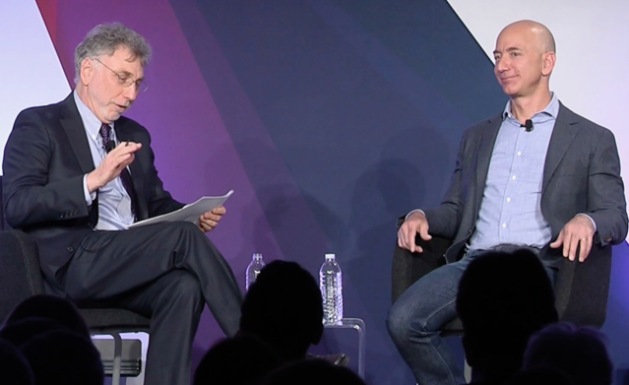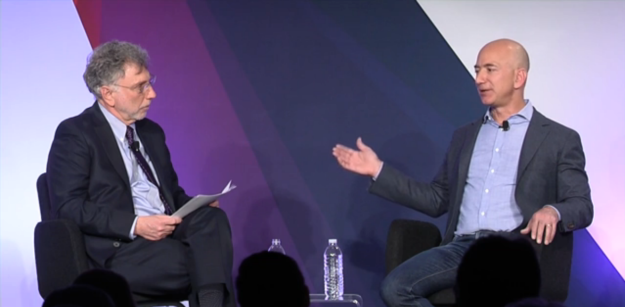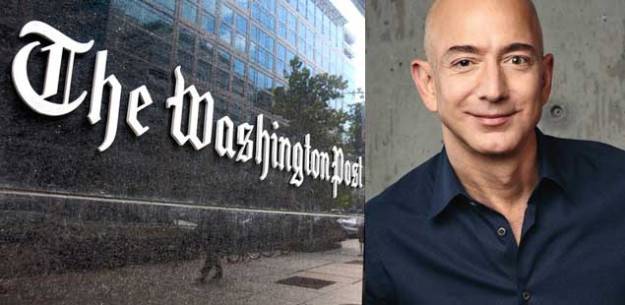Previously pubished at WGBHNews.org.
If you care to read one more example of President Trump’s fundamentally corrupt way of looking at the world, I recommend Jon Lee Anderson’s profile of the former ambassador to Panama, John Feeley, which appears in the current New Yorker. Anderson begins with a shocking anecdote — or, rather, an anecdote that would be shocking if we had not long since gone numb. Feeley was sitting outside the Oval Office in June 2017, waiting for a meeting with Trump. He heard the president drop an F-bomb in the midst of a tirade, then was led in. Vice President Mike Pence and future chief of staff John Kelly were with the president. Anderson continues:
As he took a seat, Trump asked, “So tell me — what do we get from Panama? What’s in it for us?” Feeley presented a litany of benefits: help with counter-narcotics work and migration control, commercial efforts linked to the Panama Canal, a close relationship with the current President, Juan Carlos Varela. When he finished, Trump chuckled and said, “Who knew?” He then turned the conversation to the Trump International Hotel and Tower, in Panama City. “How about the hotel?” he said. “We still have the tallest building on the skyline down there?”
I offer this to illuminate a different story — one that was nearly overlooked last weekend amid an unusually weird and disturbing outburst of Trumpian mishegas. Last Friday, The Washington Post reported that Trump had been pressuring Postmaster General Megan Brennan to double the postal rates paid by the retail giant Amazon to deliver its packages. According to the Post’s Damian Paletta and Josh Dawsey, Brennan has pushed back repeatedly, even showing the president slides to demonstrate that the Postal Service’s arrangement with Amazon and several other companies is a plus for the money-losing agency.
But Trump would not be appeased, and the reason seems obvious: The Post is owned by Jeff Bezos, the founder and chief executive of Amazon. And Trump — motivated, as always, by his personal need to assert dominance over anyone he perceives as an enemy — wants to punish the Post for its tough coverage of his campaign and his presidency. As an unnamed “Republican close to the White House” recently told Gabriel Sherman of Vanity Fair: “Trump doesn’t like The New York Times, but he reveres it because it’s his hometown paper. The Washington Post, he has zero respect for.” Sherman reported that the people around Trump have been plotting other actions against Bezos as well — such as canceling a contract for Amazon to supply cloud computing services to the Pentagon and mobilizing Republican state attorneys general to investigate Amazon’s business practices.
All of this is, needless to say, deeply transgressive. If a Democratic president acted like this, the Republican majority in Congress would be calling for hearings, and whispers of impeachment would be in the air. And if this were an isolated instance, it would be a major news story for many days, if not weeks. But because Trump lurches from one outrage to another, often over the span of a few hours, the latest eruption in his ongoing war against the Post has been all but drowned out.
Take, for instance, Trump’s latest obsession: demanding information on the FBI’s investigation into his campaign’s contacts with Russia. His improper interference in an investigation of himself (you could call it obstruction of justice, in the lay sense if not necessarily the legal sense) has already resulted in the outing a confidential informant, possibly at some risk to his life, and to Deputy Attorney General Rod Rosenstein’s twisting himself into a pretzel to avoid resigning and thus to keep special counsel Robert Mueller’s investigation on track. “It’s an incredible historical moment,” Rebecca Roiphe, a professor at New York Law School, told Charlie Savage of The New York Times. She added that Trump’s latest action was “the culmination of a lot of moments in which he has chipped away at prosecutorial independence, but this is a direct assault.”
Or consider a Washington Post column by Max Boot, a leading anti-Trump conservative, who attempted on Monday to document the political norms Trump had violated in just the previous week. It’s a breathtaking list, ranging from Trump’s lifting of sanctions against the Chinese cellphone firm ZTE right after China provided a $500 million loan for a Trump business venture in Indonesia to a Times report that the Trump campaign was offered help by the governments of Saudi Arabia and the United Arab Emirates.
“Trump’s assault on democratic norms is all the more dangerous because the response is so tepid,” Boot wrote. “Republicans approve of, or pretend not to notice, his flagrant misconduct, while Democrats are inured to it. The sheer number of outrages makes it hard to give each one the attention it deserves.”
Perhaps the best way of looking at all of these incidents was expressed by Adam Serwer in The Atlantic. Rather than multiple Trump scandals, Serwer wrote, there is really just one mega-scandal: “the corruption of the American government by the president and his associates, who are using their official power for personal and financial gain rather than for the welfare of the American people, and their attempts to shield that corruption from political consequences, public scrutiny, or legal accountability.”
That strikes me as a good way of thinking about Trump’s assault on the media in general and The Washington Post in particular. He has no respect for the First Amendment or for the role of a free press in a democratic society. It’s all about his needs and wants, and nothing else matters.
Sexual harassment and The Boston Globe
In case you missed it, Emily Rooney, Adam Reilly, and I discussed on “Greater Boston” Tuesday an accusation that Boston Globe editor Brian McGrory sexually harassed Hilary Sargent, a former top editor at the Globe’s free Boston.com website. On Monday, Sargent tweeted out a copy of an inappropriate text she said McGrory had sent her. You can watch our discussion and read Emily’s synopsis by clicking here.
Talk about this post on Facebook.







